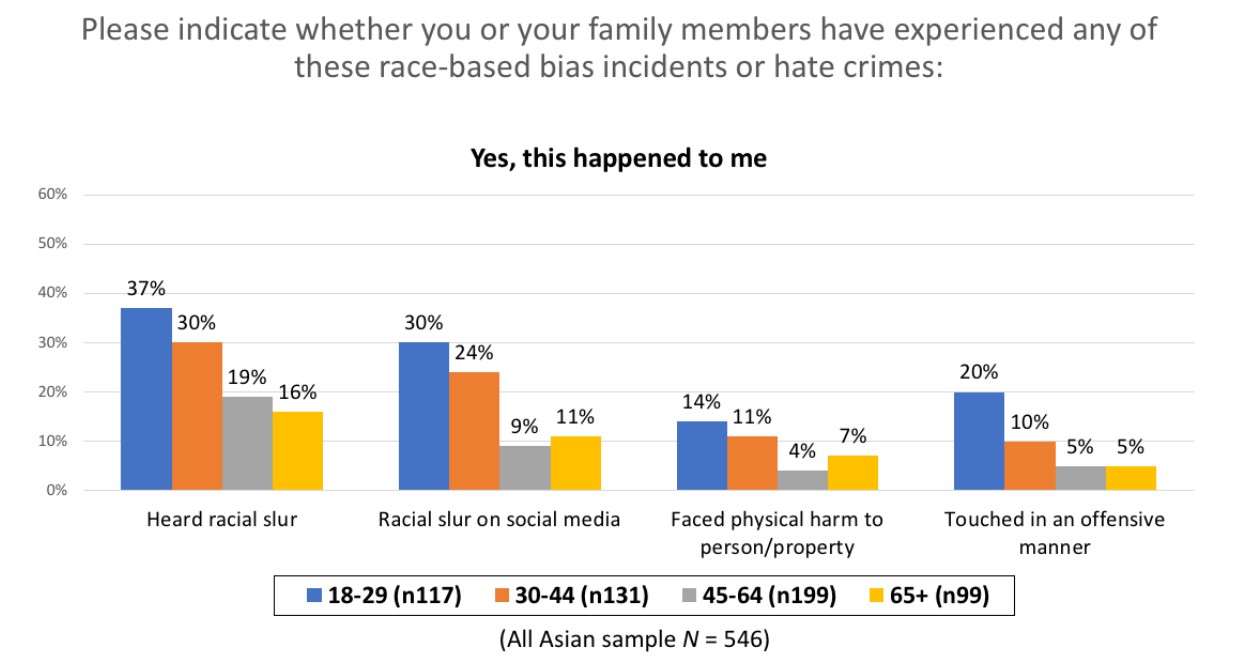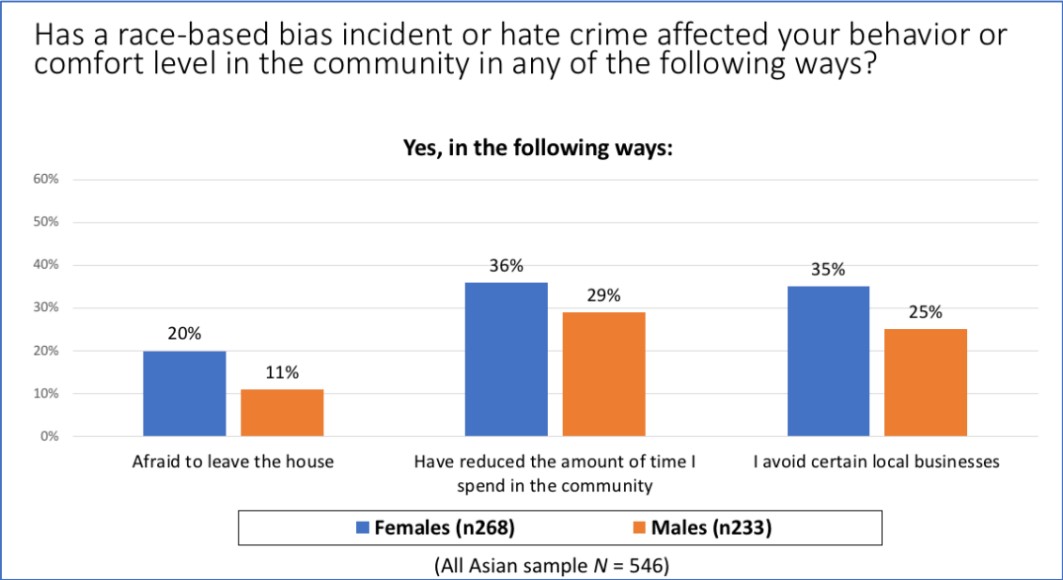PORTLAND, Ore. (KOIN) — As Asian American and Pacific Islander Heritage Month is set to begin next week, a recent report shows hate crimes and race-based harassment against Asian communities are on the rise in Oregon.
As part of a special research project, the Oregon Values and Beliefs Center (OVBC) conducted a series of statewide surveys on the topic of race-based violence against Asian Oregonians and found nearly 50% of respondents had a racial slur used against them or a family member — relative to approximately 74,400 Asian Oregonians.
OVBC said the project was proposed by Portland’s Asian Health and Service Center (AHSC) and the Asian and Pacific American Network of Oregon (APANO), to help support their work as part of Kaiser Permanente’s Asian Hate Crime Prevention Initiative.

“This is not a new problem,” AHSC Executive Director Holden Leung said. “Our community has been targeted by hate crime and harassment for decades, but this recent dramatic increase is disproportionately affecting Asian communities, generating fear, fostering isolation and creating a need for mental health services for which we do not currently have the capacity to provide.”
According to OVBC, the primary goal of the project was to observe the scope of race-based violence and harassment targeting Asian Oregonians today.
The interest comes after data released by the Oregon Department of Justice showed reports of hate crimes spiked by 366% in 2020 — 20% of which were reported by Asian Americans and Pacific Islanders.
“We were hearing from the general community and especially from Asian Oregonians and organizations that work with Asian communities that they were seeing not only an increase in these types of incidents but an increase in concerns from the people that were experiencing them and how it was impacting their daily life,” OVBC Associate Executive Director Amaury Vogel said. “We like data, we don’t like to simply guess, so we wanted to ask Oregonians if they felt like this was true for them.”
To better understand the trends of race-based violence and harassment against Asian community members, the team helped conduct four separate surveys on the topic over the course of six months.
The first survey was conducted by OVBC in October of 2021, and distributed to 1,403 Oregonians representative of the state’s demographics. The second OVBC survey was conducted in January and was administered to 548 residents of Asian heritage.

In an effort to exclude barriers and include the voices of those who do not speak English as their first language, the third survey was translated into Cantonese, Mandarin, Korean and Vietnamese and administered by the AHSC over the phone to 300 Asian Oregonians.
The fourth and final poll conducted by OVBC in March of 2022 posed the same questions presented in the initial survey to a group of 386 BIPOC Oregonians, in an attempt to track changes.
“When we got the first results back it was very alarming,” Vogel said. “After a little while things were starting to open up, and we felt like maybe people were experiencing a little less stress and pressure from COVID restrictions… so we decided to check in and see where people were in March. And unfortunately, we saw an increase in those numbers as opposed to what we thought might be a decrease.”
According to Vogel, when comparing the October and March results the surveys show a significant increase in incidents of hate crimes and harassment within the five-month period.
Based on the survey results, 33% of participants, or more than 50,000 Asian Oregonians said they had reduced the amount of time spent in the community, engaging with family or friends, physical activity levels, or the number of trips to the store because of a race-based bias incident or hate crime.

Nearly half of respondents reported hearing someone use a racial slur against them or a family member — the equivalent of roughly 74,400 Asian Oregonians, the survey showed.
“When you look at the number of people that are saying they’re avoiding certain activities and behaviors (like going to the grocery store or to the park) it’s really worrying because that impacts people’s health,” Vogel explained. “So, when you see those numbers are increasing, obviously that’s not the direction that we want to go and it’s really kind of a red alarm.”
Perhaps the most concerning statistic provided by the survey results was the overwhelming number of Asian Oregonians who chose not to report incidents of hate crimes or race-based harassment.
The survey showed that 84% of Asian Oregonians did not report race-based bias or hate crimes they experienced.
“Asian respondents reported to the police (21%) less often than our general population respondents reported incidents to the police (67%),” The report summary stated. “One Asian respondent shared they did not report because ‘we were scared of the police because we were undocumented.’”
While Vogel acknowledged there could be several reasons participants chose not to report hate crime incidents, she told KOIN 6 News mistrust of healthcare and law enforcement systems, language barriers and a lack of education or resources regarding how and when to report hate crimes are major contributing factors.
With the knowledge outlined by the special research project, Vogel said OVBC hopes to shed light on the issue of Asian-targeted racism and hate crimes in Oregon, in addition to aiding their partner organizations in their joint mission of increasing education and resources for reporting race-based harassment and crimes, along with finding and filling gaps in services to better meet the needs of Oregonians.
“Asian Heritage Month starts in May,” Vogel said. “So, while this report isn’t something to celebrate for sure –it’s a good time to call awareness to these experiences and begin thinking about how it impacts our communities.”
